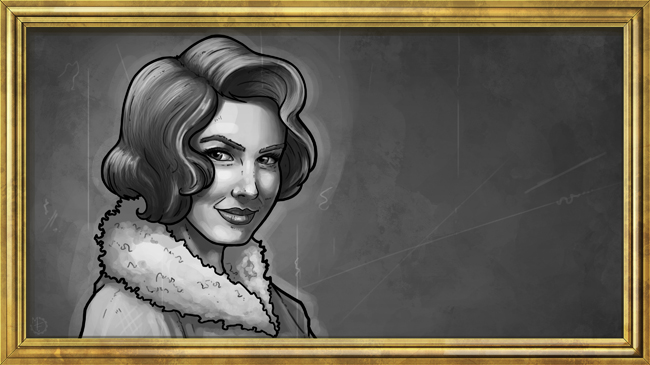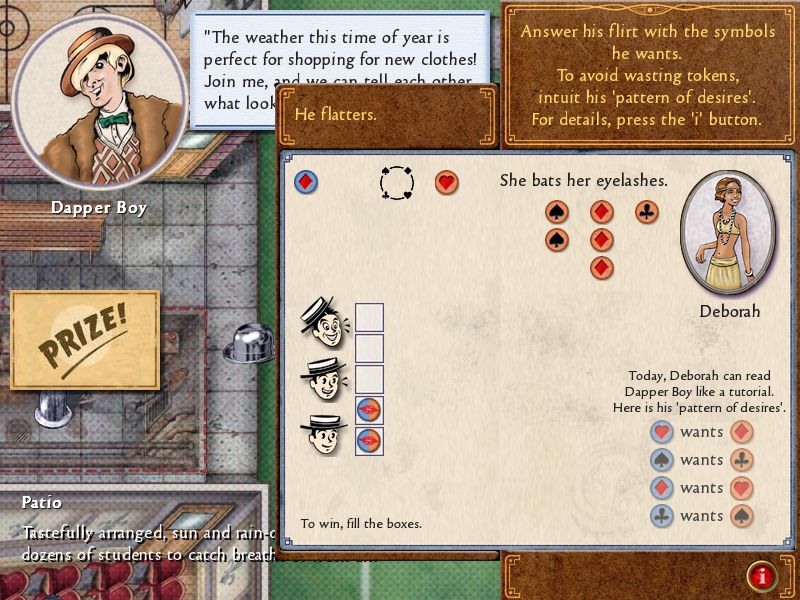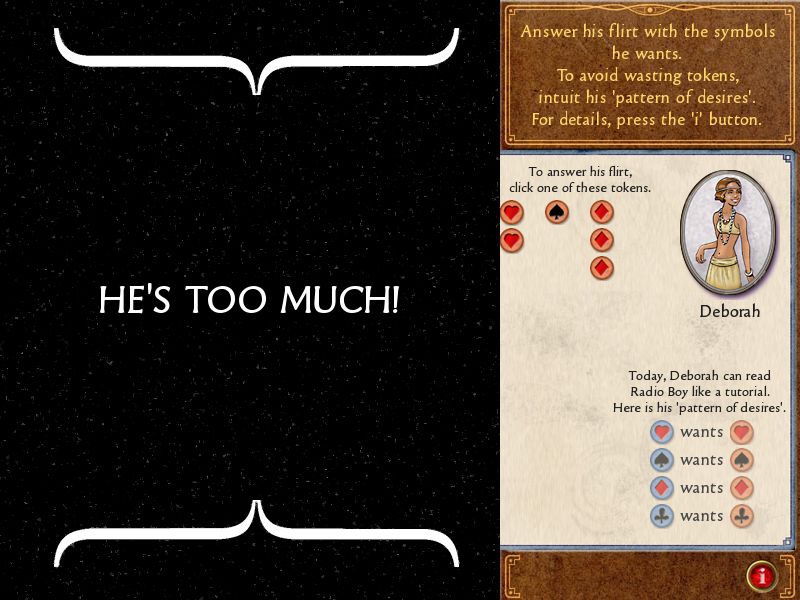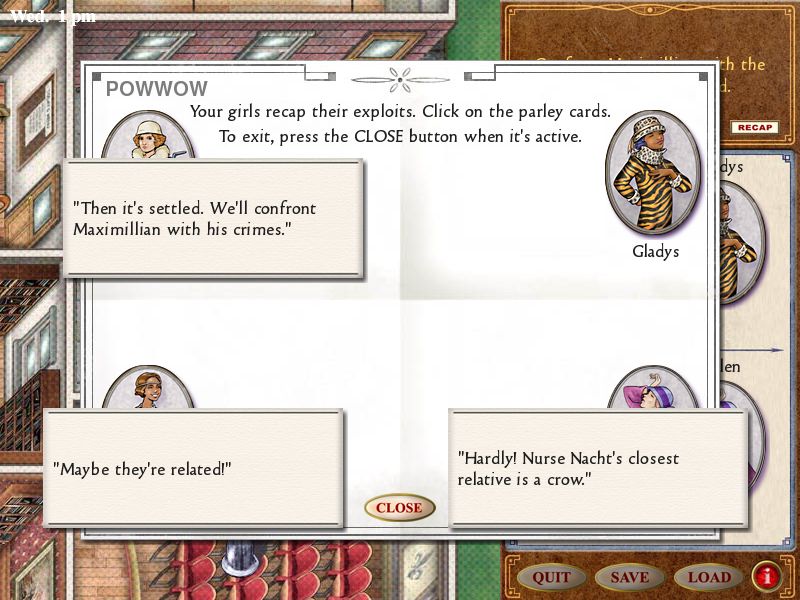Dangerous High School Girls in Trouble is an unfairly forgotten girl-gang RPG
It's the 1920s and the world needs trouble-making teens.

It's the 1920s and you're the boss of a gang of 'mystery teens', the kind of misfits and troublemakers who unravel the problems of small towns in Scooby-Doo and John Allison comics. You're the band of meddling kids who reveal the dark secrets of the local adults and set the world to rights again. And you're all girls.
That's the uncommon setup for 2008's board game-inspired RPG Dangerous High School Girls in Trouble. "I wanted to explore how feminism has evolved since the 1920s," says designer Keith Nemitz. "I grew up in the '70s, and connected with its women's movement. I hoped, by contrasting those two eras, modern feminists might appreciate how much their approaches and perspectives have advanced. Also, I have a great love of the ballsy women stars of early Hollywood, Marlene Dietrich to Myrna Loy and so many in between. They absolutely informed the PCs' personalities."
The disposable boyfriends give you a pretty good idea of the tone of Dangerous High School Girls in Trouble, which is so arch you could build an aqueduct on it.
It's presented like an old-fashioned board game, the schoolgrounds and the town of Brigiton mapped onto it as if they're expansions for Clue, and the encounters you find there represented by silver playing pieces. The character stats are card suits (hearts are popularity, diamonds are glamour, spades are rebellion, and clubs are savvy), and instead of RPG combat there are social minigames. Fibbing plays out like a cross between poker and liar's dice, while Taunting relies on knowing which retort matches which insult, learning new ones as you go like in Monkey Island.

And then there's Flirting. That's how you win boyfriends, who are basically power-ups. They lend their highest stat to the girl they're going steady with, and will valiantly take the fall if she loses at one of the minigames that might otherwise end in a few hours of detention, or even permanent expulsion from the school. After tanking that bit of social damage, the boy's gone and has to be replaced.
The disposable boyfriends give you a pretty good idea of the tone of Dangerous High School Girls in Trouble, which is so arch you could build an aqueduct on it. If you fail at the Flirt minigame a silent movie title card descends with the words HE'S TOO MUCH! written across it; the school it's set at is called "Daniel Gerard Ross" High; and at one point you can get a donkey elected mayor.

There was some good buzz around the initial demo and it was nominated for several awards, which Nemitz was pleased by. "Personally, it was a tremendous success," he says. "That it earned a nomination from the Writer's Guild of America felt like winning that award. It did win Casual Connect's Indie Prize, and was a finalist at IGF and IndieCade. After expenses, I made about 20k per year of labor. Not a great salary for the SF bay area, but it was enough to give me time to make my next game, 7 Grand Steps, which earned twice as much."
The business of indie games was very different in 2008, with distributors like Big Fish having more importance than they do now, and taking a large cut of sales. "The game targeted casual game portals of the time, who ruled and took 70% of the sales price," says Nemitz. "Then Steam came along and opened up a far more lucrative avenue for developers. They were very careful about what titles they sold, originally. Only when they accepted IGF games did DHSGiT squeak in. It sold reasonably well, whereas Big Fish banned my game for content regarding saving an NPC from sexual assault. Other casual portals blacklisted it after that tempest in a teapot. Now, they are stems floundering in hot water, and Steam is a lukewarm flood."
The biggest gaming news, reviews and hardware deals
Keep up to date with the most important stories and the best deals, as picked by the PC Gamer team.

In some ways the full version of the game didn't quite live up to expectations the popular demo created. Flirting's just a guessing game and relies on having high enough stats to fail at it a bunch of times while you're learning which kind of flirts each boy likes, and there's a new minigame added partway through the game that quickly becomes essential called Gambit, which also boils down to guesswork and isn't nearly as enjoyable to repeat as Taunting or Fibbing or the guess-the-word puzzle of Exposing.
But in spite of these imperfections it's a shame Dangerous High School didn't make a bigger impact, because the best parts of it are definitely salvageable. It would have been a perfect candidate for the kind of game whose ideas are refined in a sequel, or even a remake that tweaks the minigames, makes the art a bit more consistent, and puts in some modern resolution options.
Though Nemitz says he'd like to port all his old games to Unity some day and then re-release them on mobile, he also says the payout would probably not be worth the effort. He's considered sequels though, each set 20 years apart and focusing on the lives of women in different generations. One would be set post-WWII and called Dangerous College Women in Love, with another set in the 1960s called Dangerous Housewives Tune In and Drop Out. "I have notes for the first sequel," Nemitz says. "After Mad Men, I doubt I could do the second any justice."
This article is part of the Class of 2008, a series of retrospectives about indie games that were released 10 years ago.

Jody's first computer was a Commodore 64, so he remembers having to use a code wheel to play Pool of Radiance. A former music journalist who interviewed everyone from Giorgio Moroder to Trent Reznor, Jody also co-hosted Australia's first radio show about videogames, Zed Games. He's written for Rock Paper Shotgun, The Big Issue, GamesRadar, Zam, Glixel, Five Out of Ten Magazine, and Playboy.com, whose cheques with the bunny logo made for fun conversations at the bank. Jody's first article for PC Gamer was about the audio of Alien Isolation, published in 2015, and since then he's written about why Silent Hill belongs on PC, why Recettear: An Item Shop's Tale is the best fantasy shopkeeper tycoon game, and how weird Lost Ark can get. Jody edited PC Gamer Indie from 2017 to 2018, and he eventually lived up to his promise to play every Warhammer videogame.

